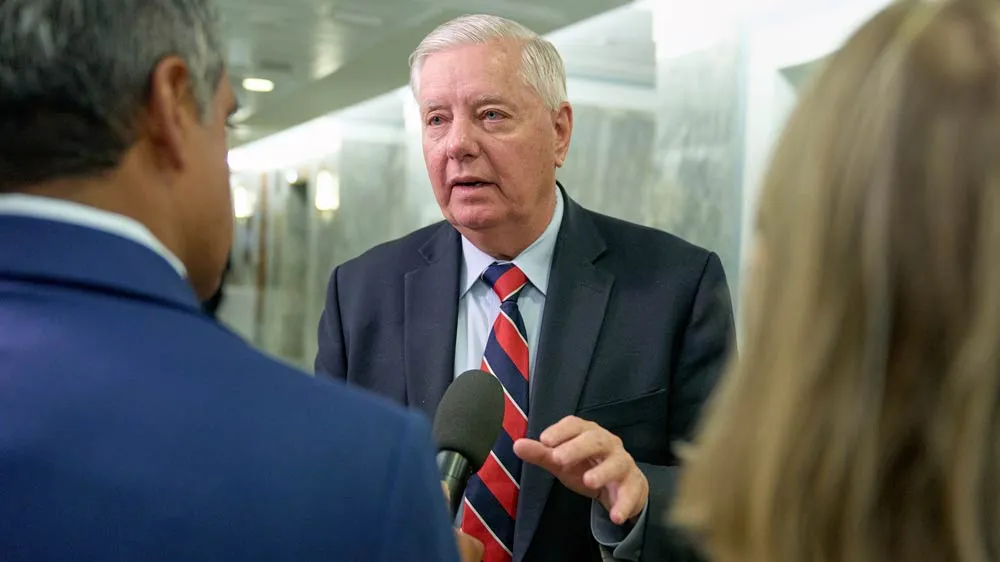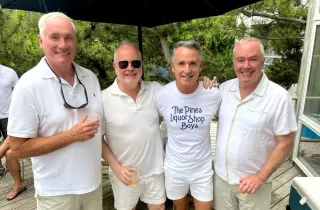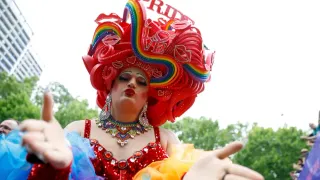November 18, 2016
Trump Adviser Known for Provocation. Or is it Prejudice?
Jeff Horowitz READ TIME: 3 MIN.
When Donald Trump announced Stephen Bannon as his top White House strategist, critics re-erupted with allegations that Bannon was racist, sexist and anti-Semitic.
"I promise you he's not as scary" as people said, Trump campaign manager Kellyanne Conway said on NBC's "Today" show Tuesday. She called concerns about Bannon "very unfair."
If history is any guide, Bannon won't be putting those fears to rest anytime soon. As a conservative media brawler who became Trump's campaign chief executive, Bannon has discarded norms for discussing race, gender and religion, often framing even abstract political fights in deliberately inflammatory terms.
"What we need to do is bitch-slap the Republican Party," Bannon said in a 2010 radio interview.
For a man aggrieved with elite educational, business and media institutions, Bannon has risen to the top of some of them. Born into a Norfolk, Virginia, family of Catholic Democrats, Bannon served in the U.S. Navy before attending Harvard Business School. Afterward, he went to Goldman Sachs, leaving to start his own media-focused boutique investment banking firm. After selling the business to French banking giant Societe Generale, he became a film producer.
Though he created successful Hollywood films, the groundwork for his future career in politics came from a Reagan biopic, "In the Face of Evil," which introduced him to conservative publisher Andrew Breitbart and author Peter Schweizer.
After Breitbart died unexpectedly in 2012, Bannon took the helm of a relaunch of his news site. Breitbart grew quickly, from 12 million monthly page views to more than 192 million by August of this year, according to the site.
During the Republican Convention, Bannon said Breitbart was "the platform for the alt-right," a loose group espousing a provocative and reactionary strain of conservatism. Heavily influenced by the shock-based rhetoric of internet chat boards, the alt-right includes strains of white nationalism and aggressive anti-feminism.
The alt-right's mainstream apologists describe those themes as a demonstration of free speech rather than a full-throated endorsement of prejudice.
In interviews, Bannon has acknowledged that the alt-right may attract some racists, homophobes and anti-Semites, but said that he does not share those opinions - and that the left harbors undesirable elements as well.
Yet Breitbart actively cultivates some of those themes, and Bannon has shown little patience for adjusting the site's tone to pacify critics.
Under Bannon, Breitbart kept a running tab of news stories titled "black crime," which catalogued the activities of supposed "black rape gangs" and "black mobs." The site used a slur for transgender people in headlines and stories. And during the campaign - a period in which Bannon stepped aside from running the site - Breitbart.com sometimes went out of its way to identify Trump critics as Jews.
"I've known and worked with Steve Bannon, and he has traditional conservative non-racist, non-prejudiced views about the world," said Joel Pollak, a senior editor at large at Breitbart, who called The Associated Press in response to a request for comment from Bannon on this story. "Lately, media conventions have determined that some of the traditional views of most of Western civilization are offensive."
Bannon has publicly disavowed tolerance for prejudice. But allegations of anti-Semitism have also followed Bannon into his personal life as well. In 2007, his ex-wife alleged in court documents from their divorce that Bannon expressed open anti-Semitism, declaring that he didn't want their two daughters "going to school with Jews." Bannon disputed saying this.
In a 2011 radio interview, Bannon declared that conservative women, including Sarah Palin and Michelle Bachmann, infuriated liberals because they "would be pro-family, they would have husbands, they would love their children." He contrasted that against a slur for lesbians.
Regardless of Bannon's personal views on race and gender, he has heartily endorsed using inflammatory rhetoric to incite Breitbart's readership. In a December 2014 internal Breitbart email obtained by the Daily Beast, Bannon and an editor discussed a traditional Washington slight - the possibility that Breitbart might not have been invited to a press conference by Rep. Jason Chaffetz, R-Utah. The conversation quickly spiraled into rage at the Republican political establishment.
He compared leadership figures to women's genitalia. "Let the grassroots turn on the hate because that's the ONLY thing that will make them do their duty."
Such opinions make Bannon an odd pairing with Reince Priebus, the Republican chairman whom Trump has named his chief of staff. Senior members of Trump's camp have downplayed the prospects for conflict.
"When you're out there just criticizing, it's one thing," Trump adviser Rudy Giuliani said. "When you actually get on the inside, there's a certain weight of responsibility to the American people that is on your shoulders. And I think Steve Bannon is the kind of guy who gets that."







